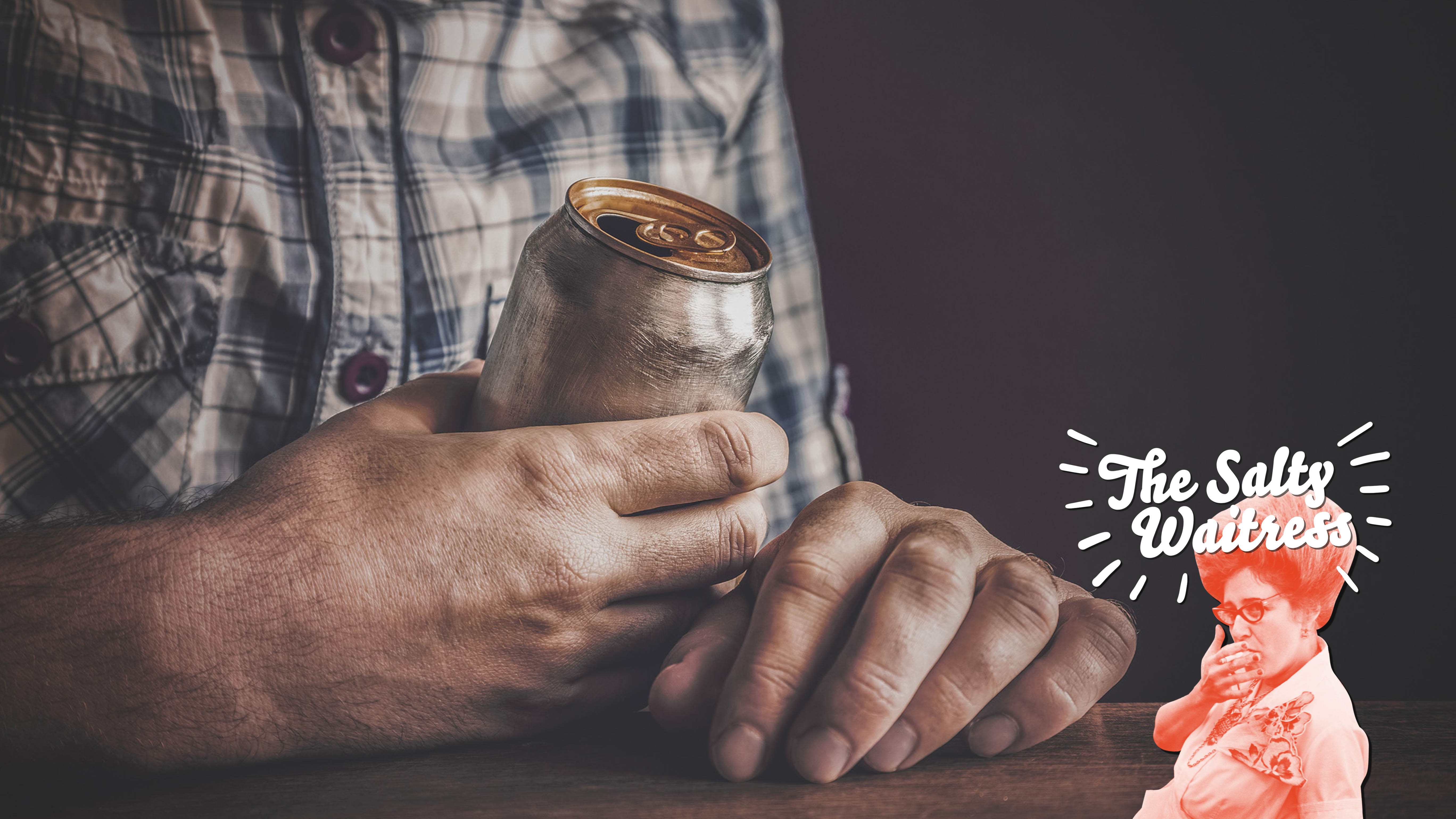Ask The Salty Waitress: I'm Concerned About My Regular's Well-Being
Hi Salty, I sling drinks in a fancy-pants place with a lot of rich customers in a ski resort out West. While I'm mostly making Whistle Pig Old Fashioneds and pouring Don Julio 1942, we also have a few regulars that aren't billionaires, and that lock up the same seat at the bar several nights a week.
This brings me to my question: There's a person whom I very much appreciate at my bar, and I enjoy conversation with whenever they're there, which is quite often. They live within walking distance, but they love their drink and often overindulge. After they've had several, either at my bar or at one of the others in the ski village, they usually end up at closing time hanging out at the restaurant, and often make comments that have me worry about potential self-harm.
It's usually stuff like, "the world would be better off without me" and "I won't be around much longer." I always try to be positive with them and build them up when I hear these kinds of things, but it makes me nervous. This person is one of the sweetest, nicest, and most generous people, but as I am someone who also deals with anxiety and depression, I recognize someone who might be struggling, if not at the tipping point.
I guess my questions is: Where does my responsibility begin and end as a hospitality industry professional for someone who might be considering serious self harm, or might be throwing a life line and a cry for help? The last thing I want to do is intrude on someone's personal life, but at the same time, if I had a chance to help someone in turmoil, didn't, and something happens, I would be devastated.
Thanks,Concerned
Dear Concerned,
There's a grain of truth in most jokes, and none more so than the cliché about bartenders-as-therapists. Bartenders hear a lot, especially from regulars whose tongues get loosened by a few rounds. Before I get into the meat of your question, I want to offer you some gentle words: Make sure you're taking care of yourself, too, sweetheart. Listening to this person sounds like a lot of emotional work, and that can take a toll if it's happening night after night. Mental health struggles are all too common in our profession, so please know there are resources for you if you need help.
Now, about your regular. If you didn't realize it already, you're doing a lot by listening. Keep doing that. It might be hard when you have a full house, but if it's slower later in the night, you're helping the customer by being present and lending a listening ear. You're not a therapist, though—shit, neither am I—but you can certainly let people know you care. (Again, just make sure you're not giving so much of yourself that it's wearing you down.)
You sound like a good person, Concerned, and likely you've already done a lot to try to build this person up. But someone else's mental health, especially a customer's, is not for you to fix. Borrowing from the "three Cs" of Al-Anon, a support group for families and friends of addicts might help here: You didn't cause it; you can't control it; and you can't cure it. You can only control your actions, not anyone else's behavior. If you think the amount of alcohol this person is being served puts them in danger, then you can stop serving them, and say it's because you're worried about them. That's within your control, and it's your responsibility.
Another way to help is by acknowledging your own limits, and pointing the customer to people more trained to help. You could say: "Hey, it sounds like you're having a hard time of things lately. I'm happy to listen, but maybe there's someone else who'd be able to help more than I can." If the person seems receptive, you can point them towards the National Alliance On Mental Illness, or the Geriatric Mental Health Foundation, which maintains a list of mental-health professionals who specialize in treating older people. You might also ask if this person has other friends and family nearby, and if so, whether they've been honest with those people about their state of mind. Make sure your customer knows about the National Suicide Prevention Lifeline.
I guess this brings us to the crux of the matter: How can you tell if this person is in danger of hurting themselves? The Mayo Clinic has suggestions of the types of questions you can ask to figure this out. If you suspect this person has the desire and means to hurt themselves, you should take them seriously. Again, you can't cure or control anyone else's actions, and especially in this case, you might not be close enough to this person to know all that's going on. But the American Foundation For Suicide Prevention says all suicide threats should be taken seriously. They say you should tell this person you care about them, then ask directly: "Are you considering suicide?" If the answer is yes, strongly urge they talk to a professional and seek immediate treatment, and/or call the National Suicide Prevention Hotline. You can also text the National Crisis Line for help, or call the local police to conduct a wellness check on this customer if they're no longer in your bar.
If you've done all you can to point them toward help and listen when they talk, then you've done all you can. This is not your issue to solve, and again, you need to take care of your own mental health, too. I'm sorry this is a situation you're dealing with, and I'm sending my Salty love to both you and your customer.
Got a question about dining out etiquette? Or just a general question about life we can help you with? Email us: salty@thetakeout.com
